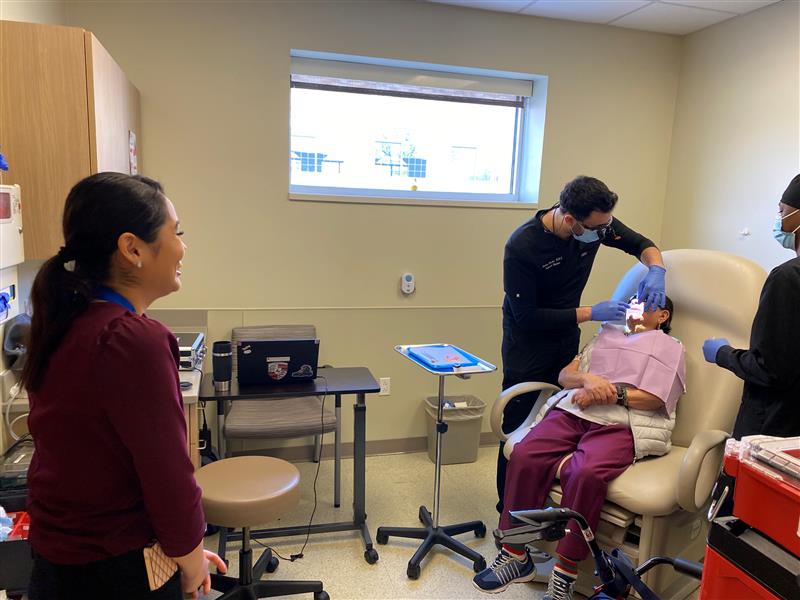When we think about barriers to healthcare, we often think of issues like cost, transportation, or lack of insurance. However, there’s a less visible but equally significant obstacle that affects millions: language differences.
For many, the challenge of navigating a complex healthcare system becomes exponentially more difficult when English isn’t their first language. Imagine trying to describe your symptoms, understand a diagnosis, or follow medication instructions in a language you’re not fluent in. What may seem like a small hurdle can have profound implications for those seeking care.
Accessibility in healthcare reaches its full potential when we can meet people where they are, which for many of our participants, means accommodating the language they’re fluent in. More than half of Hispanics over the age of 40 say they have difficulty finding a healthcare provider who speaks their language. Our caregivers at LifeCircles knew they could make a difference in our participants’ care when it comes to language inclusivity.
LifeCircles’ Journey to Inclusive Care
Recognizing these challenges, LifeCircles established its structured language services program three years ago, thanks to the help of caregivers like Yvette Ramirez, CPC, and Eva Peña. The initiative was sparked by the growing number of Spanish-speaking participants and a desire to better meet the needs of all non-English-speaking individuals in our care.
“We had bilingual staff members, but we wanted to bring more structure to how we provide these essential services,” explains Yvette, a LifeCircles staff member. “It was a significant undertaking, but an aspect of our care that needed to be addressed as one of our key quality initiatives.”
Going Above and Beyond
LifeCircles’ approach to language services goes beyond industry standards. LifeCircles now has four qualified interpreters on staff to support participants.
“Not only do we provide interpretation services within our facilities, but our interpreters also accompany participants to outside medical appointments. This ensures continuity of care and clear communication across all healthcare interactions.”
This comprehensive approach helps address many hidden barriers that non-English speakers face in healthcare settings. It reduces the risk of miscommunication, ensures that participants fully understand their care plans, and helps maintain their autonomy in making informed health decisions.

Positive Feedback and Continuous Improvement
The response to the language services has been overwhelmingly positive. Yvette noted that the team regularly seeks feedback from our participants and their families. “Their input has been crucial in refining and improving our services.”
One key aspect of the program’s success has been the commitment to the LifeCircles staff. “With this restructuring, one of the big key components was not only training staff well but also ensuring they were compensated appropriately.” Our interpreters are able to ensure consistent, excellent service for our participants.
Looking Ahead
Our language services program is a testament to our commitment to inclusive, compassionate care for all our participants, regardless of their first language.
As we continue to grow and evolve, we remain dedicated to breaking down barriers and ensuring that all our participants can communicate effectively about their health and well-being. We’re not just providing healthcare – we’re building a community where everyone’s voice can be heard and understood.
Last Updated on August 30, 2024
